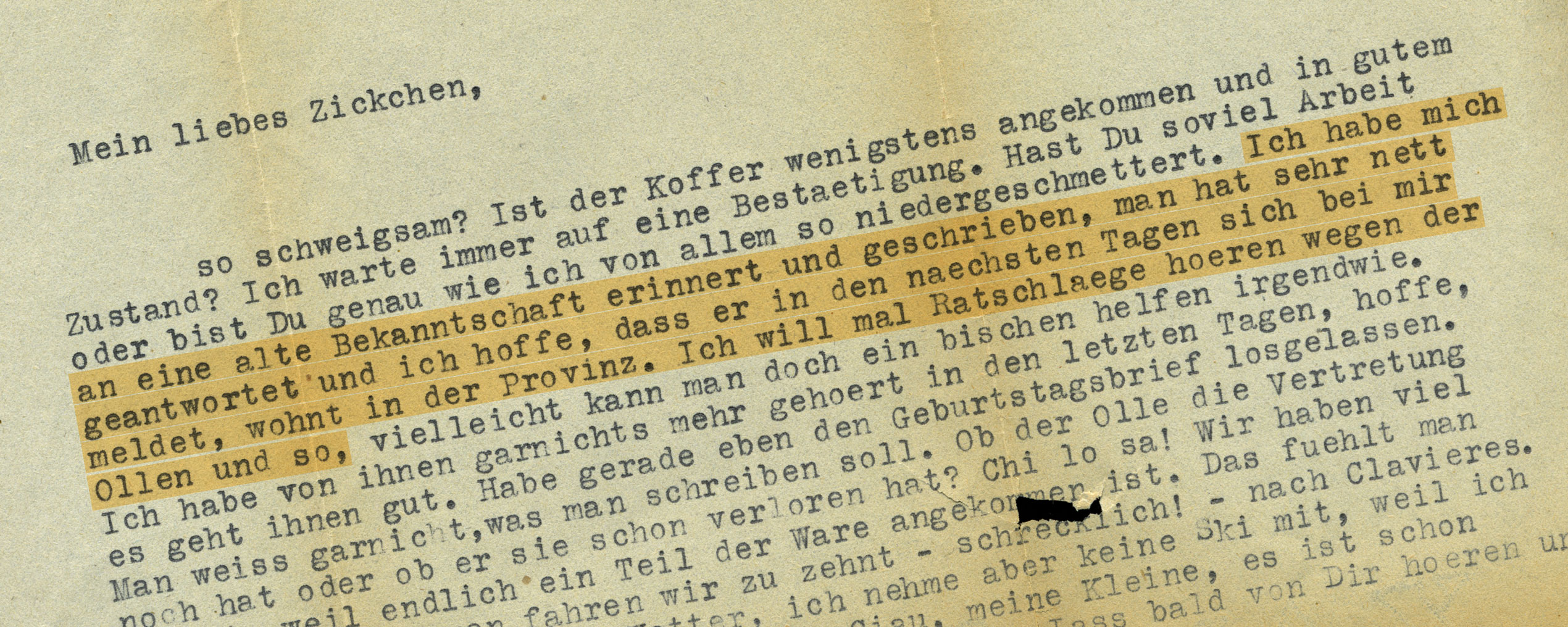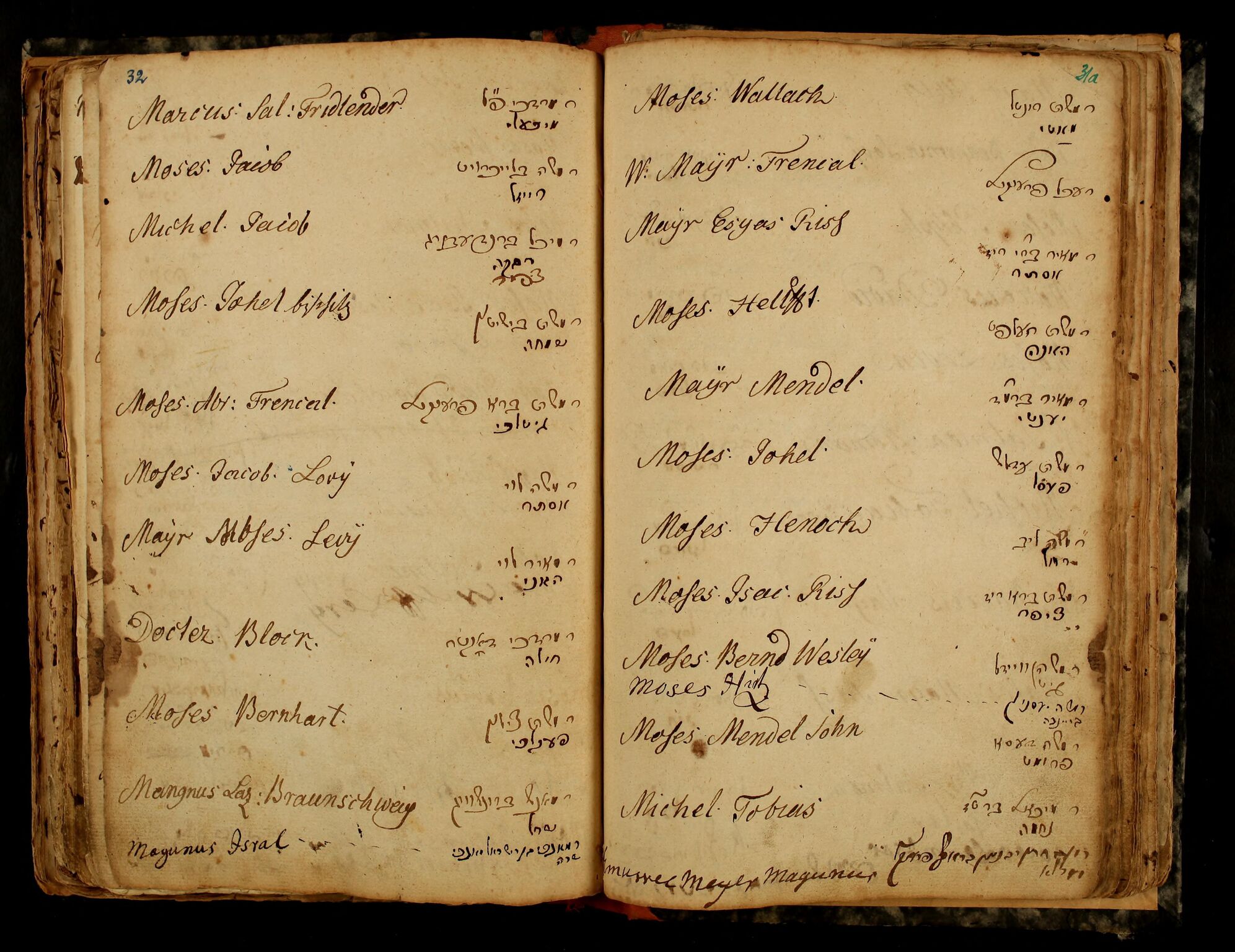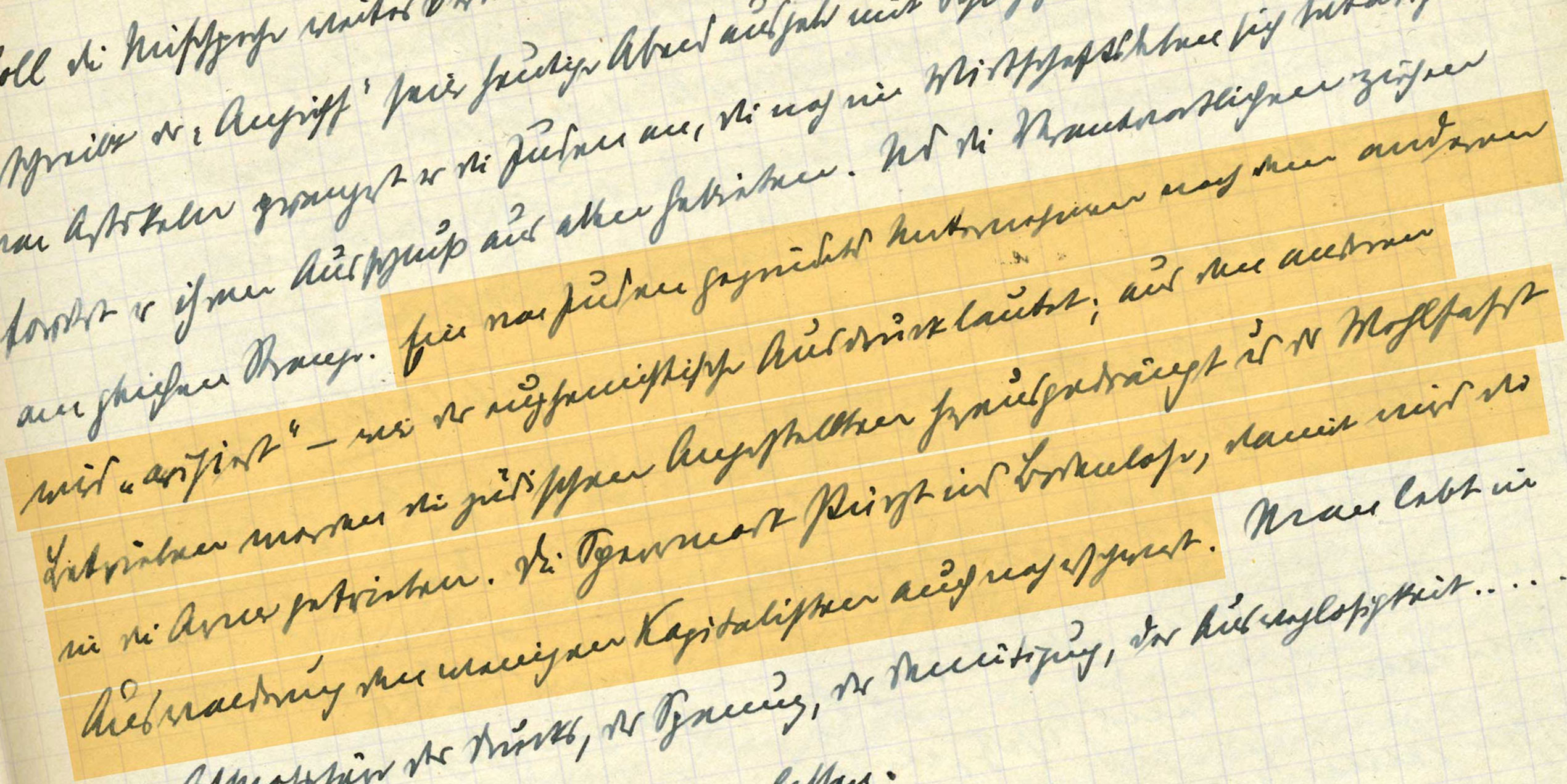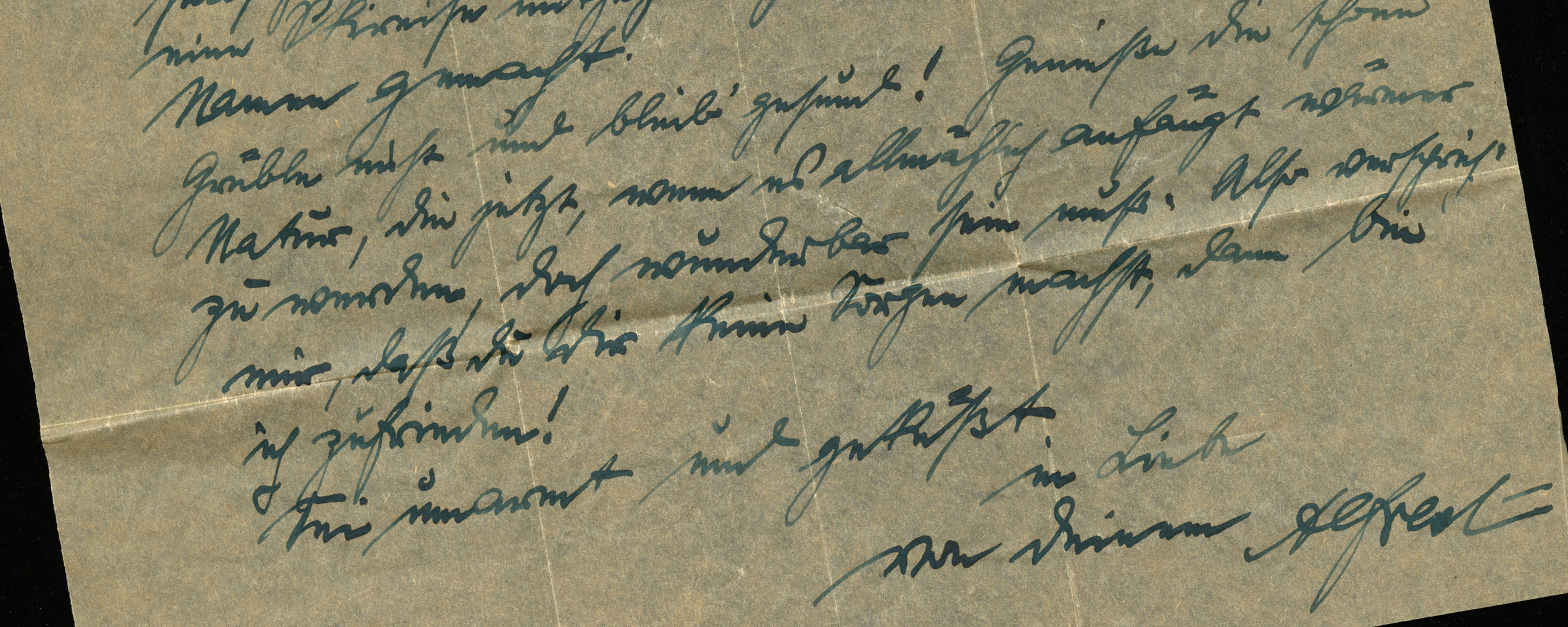Sell the jewelry
Brothers in exile worry about their parents
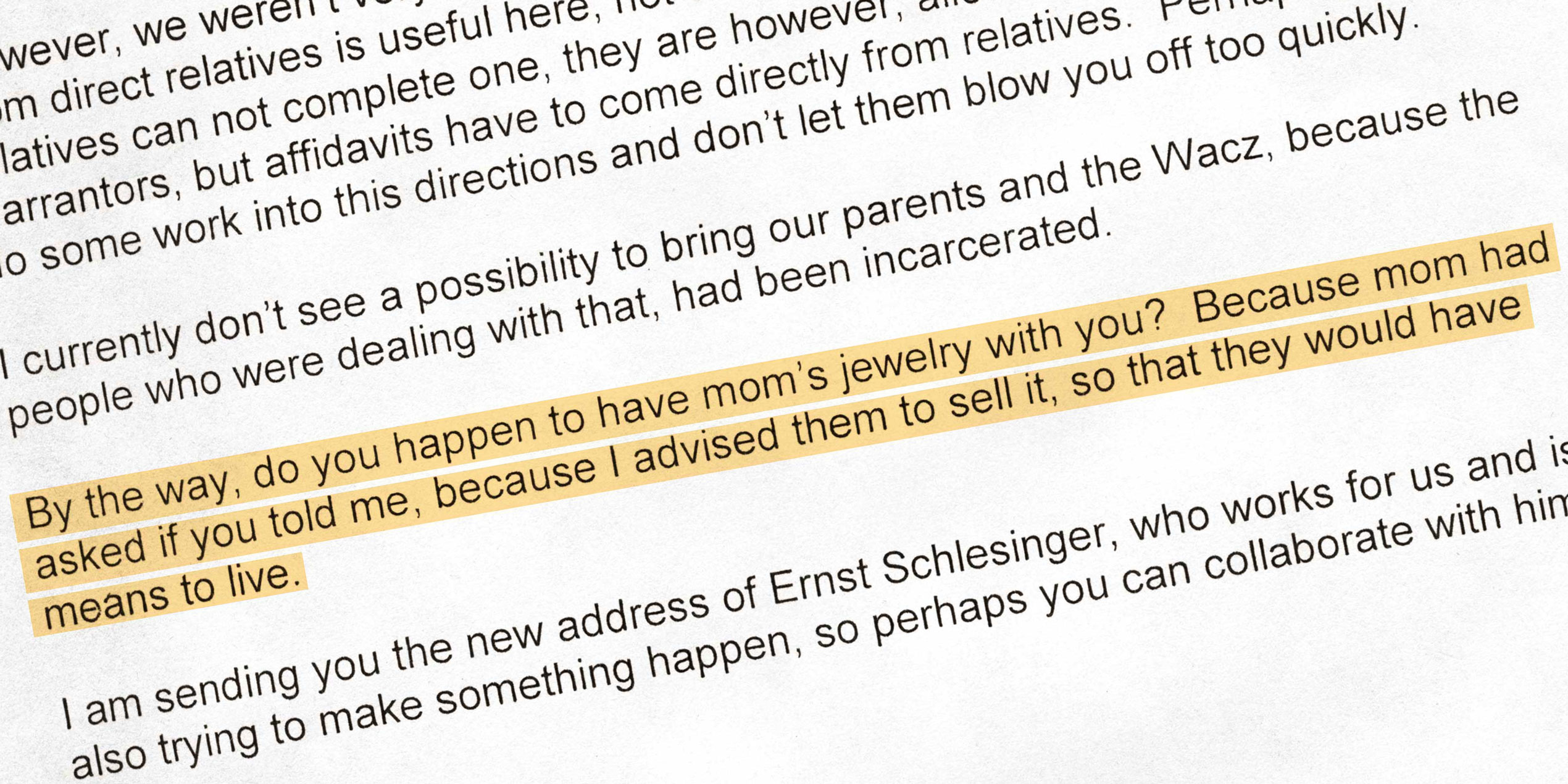
“By the way, do you happen to have mom's jewelry with you? Because mom had asked me if you told me, because I advised them to sell it, so that they would have means to live.”
Chelles/New York
In February 1938, two brothers living in two different continents, Joszi Josefsberg in Europe (Chelles, France) and Arthur Josefsberg (New York) discuss in their correspondence how best to proceed to obtain affidavits to rescue their parents, who are still in Germany. But not only the fact that their parents’ emigration has not yet been secured worries Joszi—he is also concerned about their material survival. Such concerns were common among Jews who had left behind parents, siblings, and often spouses. Nazi efforts to force Jews out of numerous professions had made it harder and harder for those remaining in Germany to earn a living.
Several months after the 1938Projekt was completed, LBI learned that the letter was misdated while transcribed. Although it was written later than February 1938, LBI decided to keep it in the project under the same date because of the important content.
SOURCE
Institution:
Leo Baeck Institute – New York | Berlin 
Collection:
Arthur Josefsberg Correspondence, AR 25590 
Original:
Box 1, folder 1
Source available in English








































